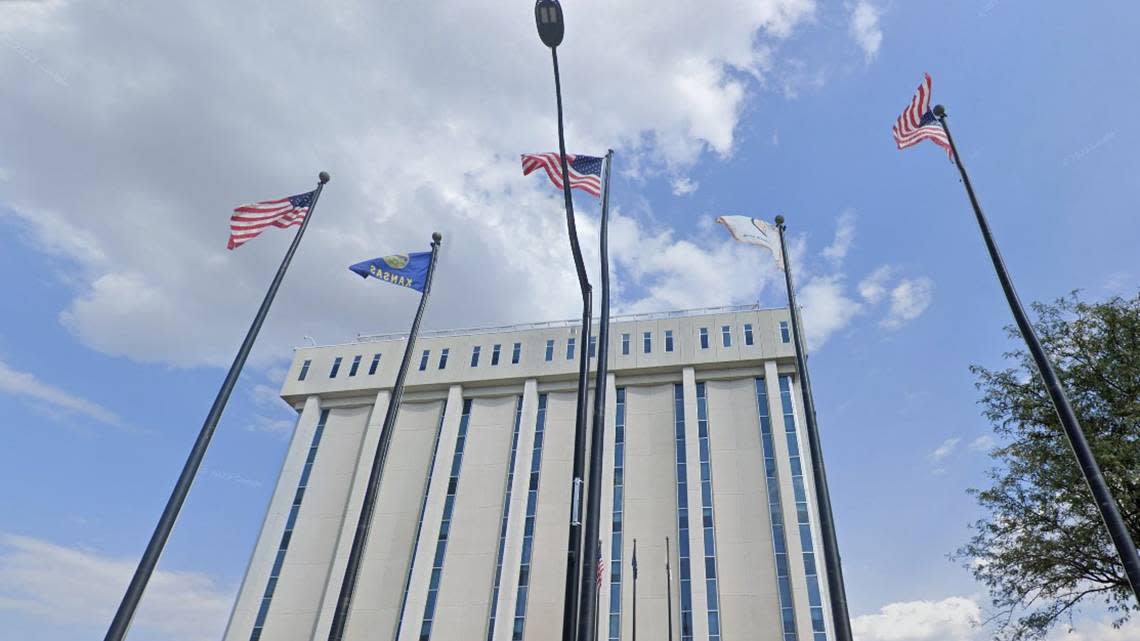Wyandotte County says ‘no’ to more property tax money. Where will budget cuts fall?

Reality Check is a Star series holding those with power to account and shining a light on their decisions. Have a suggestion for a future story? Email our journalists at RealityCheck@kcstar.com.
Wyandotte County’s elected leaders on Thursday chose to forgo any new property tax revenue for next year’s budget, answering distress calls of residents and putting public services on the chopping block.
Unified Government of Wyandotte County and Kansas City, Kansas, commissioners voted 9-0 to kill a resolution that would have allowed for a budget partially sourced on increased property tax revenue.
The move means about $14.3 million less will be available to fund city and county budgets. It comes as financial forecasters expect $23 million more in requests.
And how that will affect services remains to be seen.
Discretionary spending is already limited in Wyandotte County. Last year, nearly 70% of the city’s $180 million general fund was dedicated to public safety, including police and firefighters.
The county’s general fund was $84 million last year. Roughly 57% was spent on public safety. Overall expenses on personnel accounted for 67%.
Property taxes may still increase regardless as the Unified Government is only one local taxing authority. School districts and the community college have yet to approve budgets or set rates.
In their decision Thursday, commissioners rejected the advice of top Unified Government staff, who painted a potentially bleak financial picture without additional property tax revenue as an option.
Newly hired Chief Financial Officer Shelley Kneuvean said the elected body could “keep the doors open” to those monies and change their minds later when city and county budget proposals are finished.
But dozens of fired-up residents who showed up to City Hall implored commissioners to slam the door shut. Several said high property taxes were driving them from their homes.
Curtis Martin pointed to the vacancies in Quindaro, calling the neighborhood a “ghost town,” as development is booming in western Wyandotte County.
“You need to find another source to get this money from,” Martin told commissioners, as fellow property tax protestors erupted in applause.
Increased values
Tax rates set by the Unified Government for city and county services — which account for about 44% of the yearly tax bill — have stayed largely flat over the past 10 years. Presently the rates in Kansas City, Kansas, and Wyandotte County are lower compared to 2015.
But property tax bills have still been on the rise, especially in the past few years, amid soaring property appraisals. Earlier this year the Wyandotte County Appraiser’s Office issued a report saying the median price of a home stood at $235,000, roughly 27% higher than in 2022.
Increases were in every corner of the county — from wealthy communities out west to poverty-stricken ones out east — as the metro faces a housing shortage and Wyandotte County homes remain relatively cheap.
A Kansas law on the books since 2021 altered the budget process for local governments, putting added pressure on elected officials when it comes to property taxes.
The state law — called revenue neutral — requires elected county and city officials to decide by mid-July whether to collect added revenues generated from property taxes.
Proponents have championed the new law as a good governance tool that forces local elected leaders to make tough choices in the public eye. Critics say the revenue neutral title is misleading, as local governments depend on other more volatile revenue streams to make public services work.
Speaking to commissioners ahead of the vote, Kneuvean, said reducing the levy to fit revenue neutral does not mean the Unified Government gets the same amount of money as last year. Other sources projected to decline include interest earnings and money gathered through vehicle registrations.
‘Shared sacrifice’
Meantime, Kneuvean said, the Unified Government will naturally have higher costs next year on everything from purchasing goods and services to meeting the contractual obligations of salary increases mandated by union contracts.
Hours before the vote, county officials presented in broad strokes the additional needs they say exist to simply meet basic requirements set by state law.
Sheriff Daniel Soptic said he needs more money because of factors beyond his control. Inflation and the cost to feed jail inmates, for example, are going up.
“For years and years and years, the sheriff’s office along with many departments in the (Unified Government) have been asked to make cuts … and the sheriff’s office has always risen to that, and has worked with this commission and this governing body to do that,” the sheriff said.
“The problem is there becomes a point where there’s nothing else to cut.”
After residents spent more than two hours outlining their concerns, commissioners said they were well aware of the financial struggles many in the community face. But they also warned services would likely be depleted if they left new property tax revenue on the table.
Commissioner Tom Burroughs, 2nd District at-large, asked attendees whether they “have the strength and the wherewithal to put up with the cuts that are coming.”
“Because if you are, I am ready to stand with you,” he said. “However, I just wanted to be as transparent as I possibly can as to the seriousness of this request.”
Residents opposed to the idea celebrated in applause after commissioners made their votes Thursday. The only elected official not participating was Commissioner Mike Kane, 5th District, who was absent Thursday night.
The outcome was a political victory for Mayor Tyrone Garner, who campaigned as a reformer and is now in the third year of his first term. The mayor, who has long advocated for such cuts, acknowledged Thursday there would be “shared sacrifice.”
“There’s got to be,” Garner said. “But I also believe that we can streamline this government, we can operate more efficiently, we can provide better customer service, and we can be just as effective as any other city around town.


